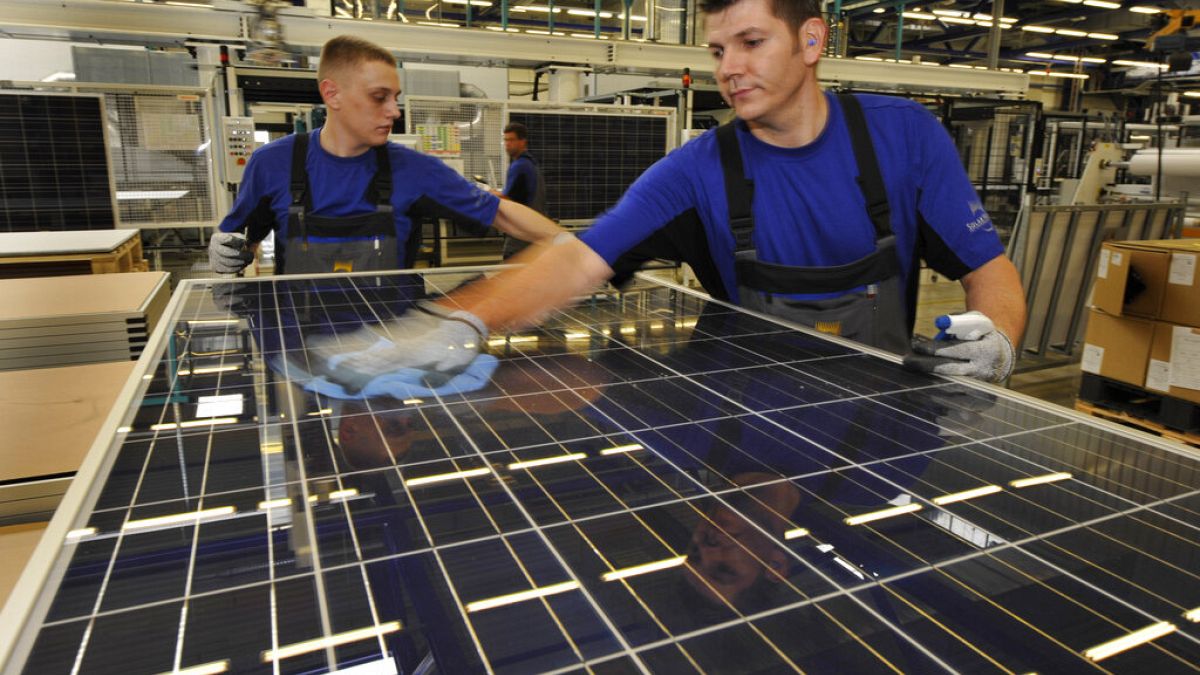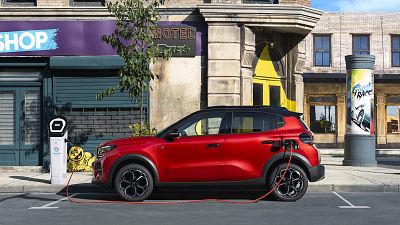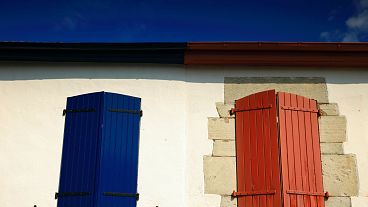Global demand target of 25% divides member states during institutional talks.
A European Parliament target for at least 25% of annual global demand for clean technology to be made in the EU divided member states ambassadors in the final stages of negotiating the Net Zero Industry Act (NZIA) earlier this week, according to an EU diplomat and internal diplomatic note seen by Euronews.
A “global demand” target was introduced to the draft NZIA — the EU’s industrial green plan to deploy at least 40% of domestic production of clean technologies to achieve the bloc’s climate targets by 2030 — by rapporteur MEP Christian Ehler (Germany /European People’s Party)
A number of countries failed to see how such a global demand target “would improve the Union’s access to [clean] technologies”, according to the note, since the goal of the bill is to ensure enough production within the bloc to meet the EU's own demand required as a result of its climate and energy targets, rather than shipping it outside the continent.
“It is important that any goal that might be set is feasible in terms of its implementation, as well as consistent with the legal basis of the regulation,” an EU diplomat told Euronews, confirming that ambassadors broached the issue but failed to reach agreement on it during inter-institutional 'trilogue' negotiations on the NZIA held earlier this week (22 January) .
Another EU diplomat said that there was insufficient underlying data to underpin the parliament's putative 25% target, and it was unclear on what basis the percentage had been reached.
The note said that while Denmark, Hungary, Italy, Luxembourg, Portugal, the Netherlands, Sweden, Slovenia and Spain remained open to some form of target being maintained, Bulgaria, Cyprus, Czechia, Germany, Greece, Ireland, Latvia, Lithuania and Romania were critical of the idea.
MEP Marc Botenga (Belgium/The Left), shadow rapporteur on behalf of the Parliament, noted this is a “theoretical” target and the details on what this threshold means in practice need to be clarified in technical meetings.
“It was presented as necessary to ensure EU's independence with regard to the production of net-zero technologies, now the goal is also to secure a share on the global market,” Botenga said.
MEP Damien Carême (France/Greens), another shadow rapporteur, echoed Botenga’s reservations saying the best way to reinforce the EU’s strategic autonomy and resilience is to focus “on a limited number of sectors of high priority to cover European needs”.
“It should not aim at sizing our manufacturing capacity according to what others intend to deploy on their soil, or to perpetuate an economic model based on unbridled growth at the expense of resources and the environment,” the French lawmaker said.
The Belgian Presidency “remains positive” that a final agreement will be reached during the next inter-institutional negotiation, to be held in Brussels on February 6.



